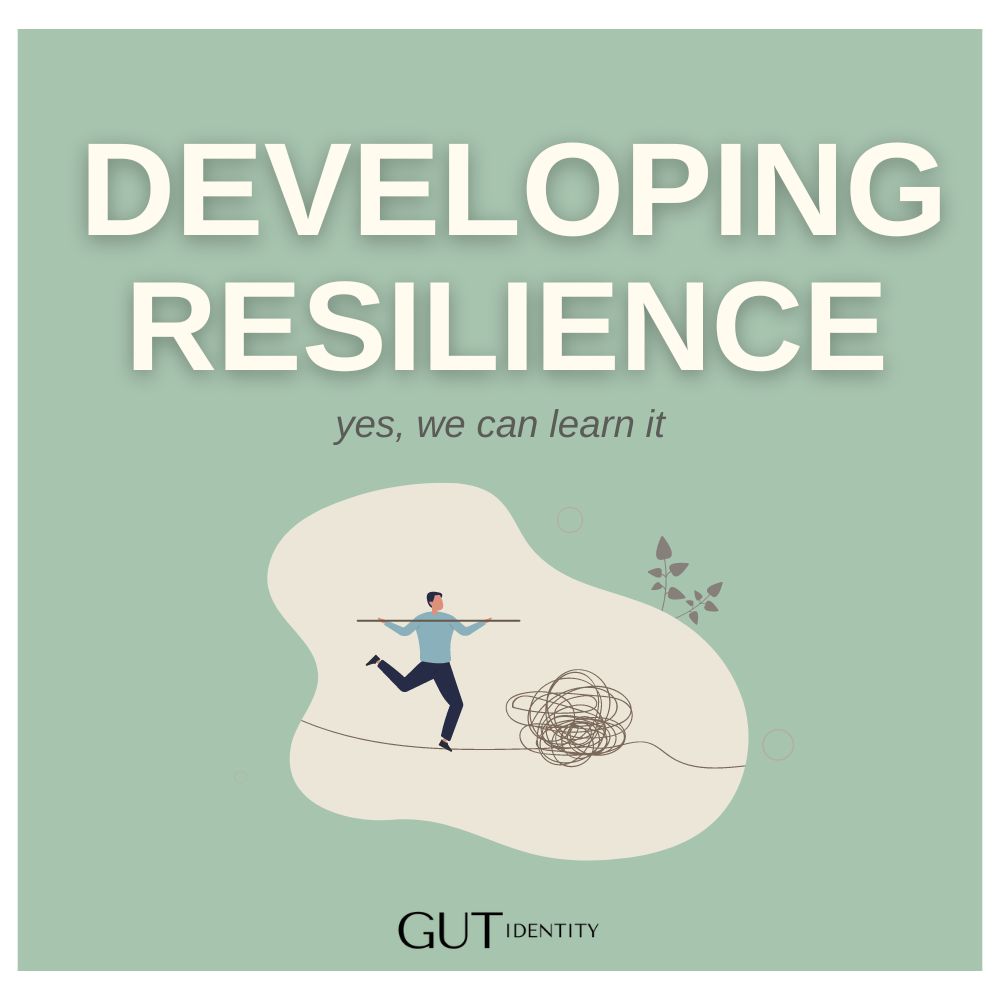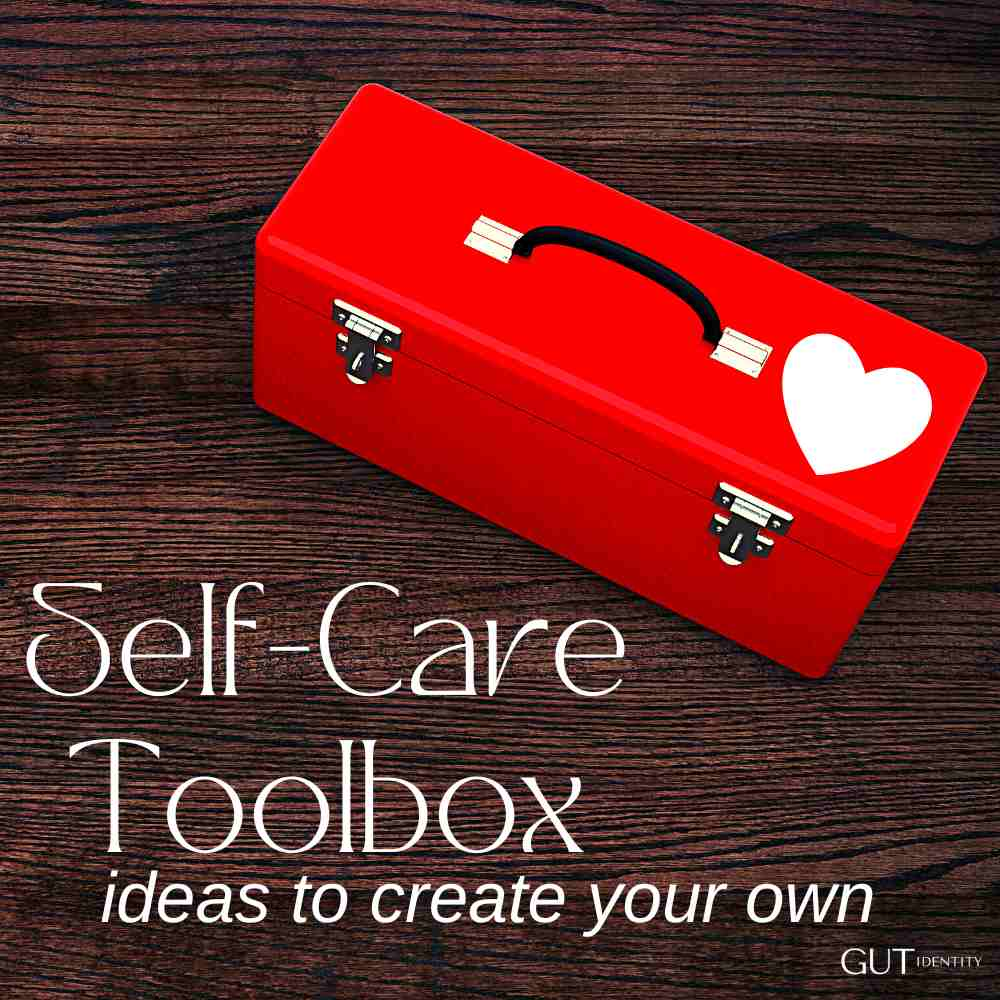Resilience is so important in every facet of our lives. It’s what helps us get back up when we get knocked down. When there’s a lot of things going on around us and it feels like the world is spinning out of control, being able to overcome even small challenges is essential. We can learn to navigate challenges when armed with some strategies and some commitment.
I believe that resilience can be learned if we follow some basic principles and try! So let’s break down what factors are important in a success at developing resilience for challenging times:
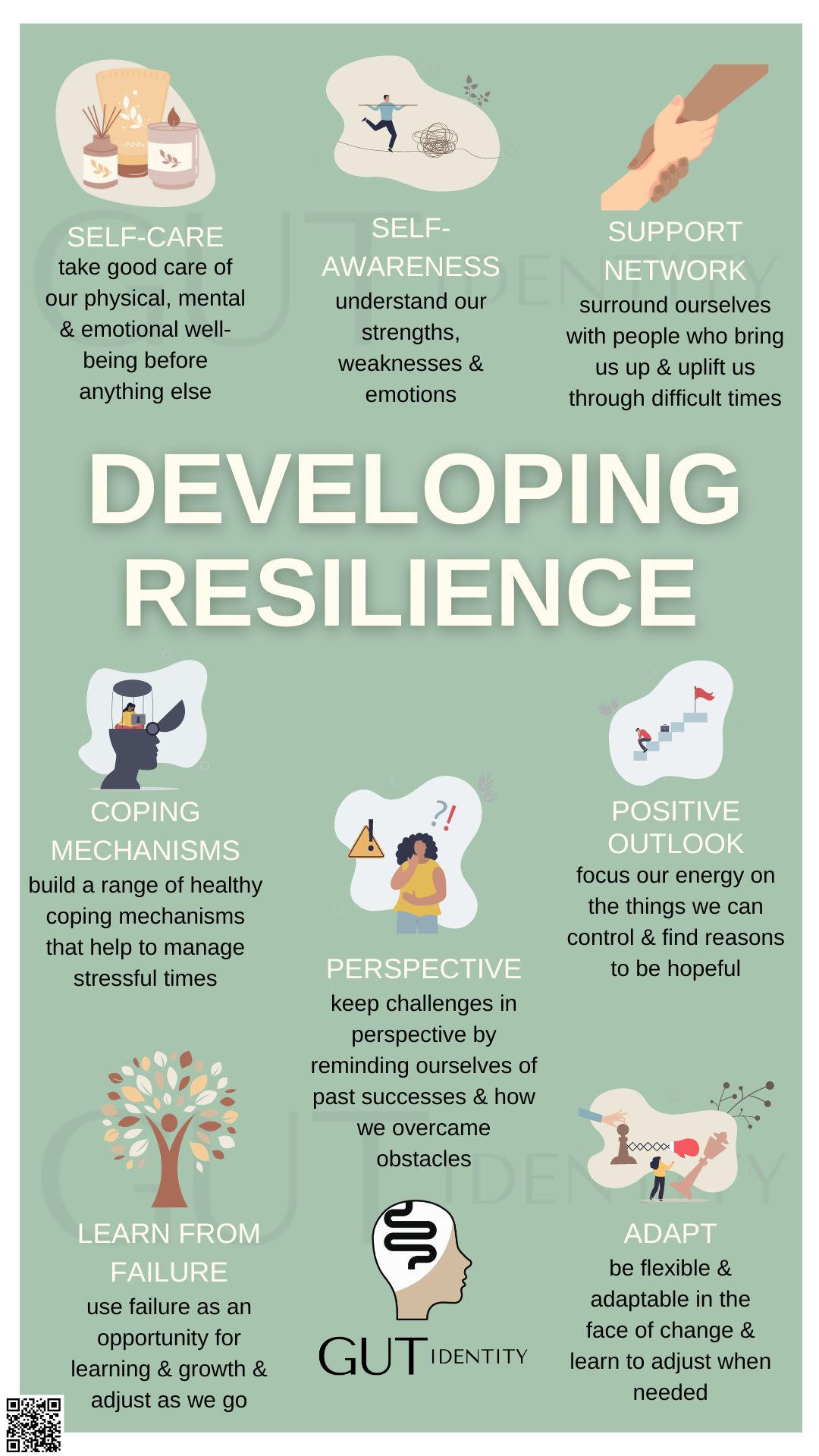
taking care of ourselves first is the most important thing

When we take care of ourselves first, everything else seems to fall into place better. When we are physically fit, emotionally healthy, and rely on something greater than ourselves, we can cope with challenging situations more easily.
Engaging in self-care practices, such as regular physical exercise, healthy eating, sufficient sleep, and mindfulness activities, nurtures our body and mind. These activities help reduce stress, enhance mood, and improve overall mental health, providing a strong foundation to face life’s adversities.
Remember that there is always going to be something that crops up so being able to look after our general well-being allows us to recharge and maintain balance, preventing burnout and fostering a positive outlook.
being self-aware helps us develop our resilience strategies

We can develop self-awareness through an understanding of our strengths, weaknesses, and emotions. By recognising our reactions to stress and adversity, we can work on managing them effectively.
If we are unaware of our triggers and the strategies we use to deal with them, we can be left feeling helpless in challenging times. But if we truly know ourselves, and what’s good for us in tough times, we can cope better with what life throws at us.
Sometimes, in order to get to know ourselves, we have to spend time alone. This way, when we learn about ourselves, we know that when the going gets tough, we can always rely on ourselves.
Check out some ways you could use to get to know yourself better that are simple, cheap and effective.
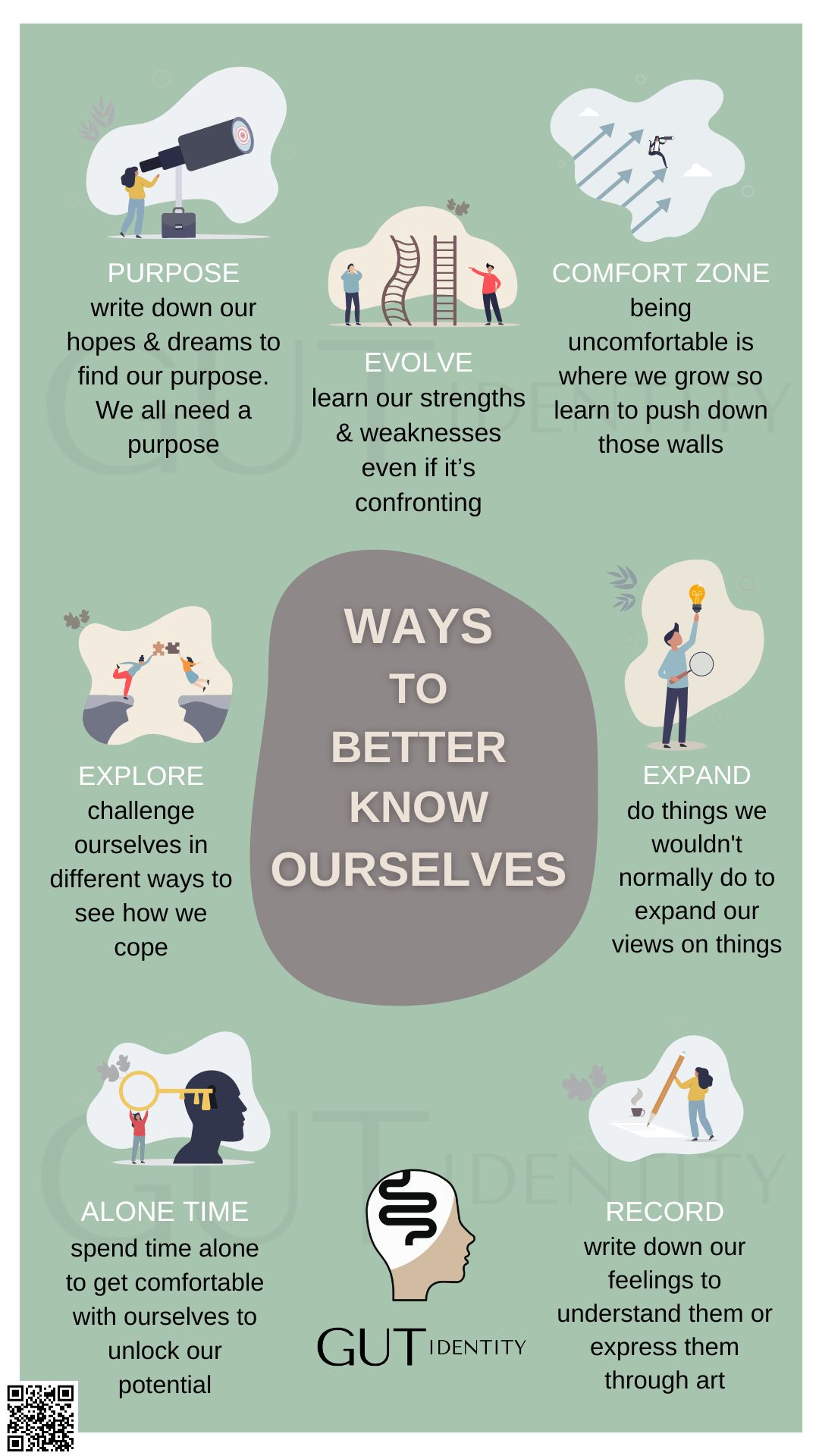
get a good support network to help build resilience

Building a support network is crucial for developing resilience, as it provides a reliable foundation of emotional and practical assistance during challenging times. A strong support network includes family, friends, mentors, and community resources that offer encouragement, advice, and companionship.
These connections create a sense of belonging and reduce feelings of isolation, which can be particularly comforting during periods of stress or adversity. We can use these supportive networks to share our experiences, gain different perspectives, and receive constructive feedback. This helps us develop problem-solving skills and learn to rely on others when needed.
Knowing that there are people who care about us and are willing to help, helps build our confidence and motivation to overcome obstacles. We all need friends and guides along the way, especially now as the world becomes more turbulent.
adopt a positive outlook on things even when things appear bleak

It’s not always easy developing a positive outlook but it’s essential for cultivating resilience, as it shapes how we perceive and respond to different challenges. A positive mindset encourages optimism and the belief that our difficulties can be overcome, which in turn fosters perseverance and determination.
It can be easy to give in to negative thoughts when we feel things are against us but trying to focus on solutions rather than problems will help us feel better in the moment. Everything passes, including the good and bad times, so remembering this can help us pick ourselves back up and focus on the things we can control. Letting go is a big part of this. A negative mindset usually only brings more negative things. Remember, what we place our focus on, our energy goes to that.
being able to adapt to new things helps build our resilience in challenging times

If there is anything I have learned over the past 4 years, it is the ability to adapt quickly to new situations and environments. Going with the flow of things also helps. Learning what I can and can’t control has helped me cope with challenges and be able to move on more quickly to adverse events.
We all face change in our lives, some good, some not so good. But whatever we face, if we’re able to adjust to the new situation or event, we teach ourselves that we CAN cope. This then helps us fend better when a new change comes up. Remembering that we don’t have to adapt or adjust perfectly is also important. I just tell myself that I’m here to learn and so whatever is thrown my way, I try to see what it is I can learn from the situation.
putting things in perspective helps us develop resilience

Putting things into perspective helps us build resilience by allowing us to see challenges in a balanced way. When we step back and view problems in the context of our overall life, they often seem less overwhelming. This approach helps me stay calm and focused, making it easier to find solutions to any possible difficult situations I may be facing.
Recognising that setbacks are a normal part of life and not insurmountable, we can maintain a sense of hope and can continue to move forward. This perspective helps us bounce back from adversity with greater strength and confidence. Things are often not as bad as we think. Sometimes just sleeping on it and waking up to a new day can make yesterday’s problems seem not as bad.
Practising gratitude in these moments has been a lifesaver for me. There is always someone worse off than me. I’m grateful for my health, my friends, my family, and my life in general. By putting whatever it is I’m facing into perspective in the whole scheme of things, most things aren’t really that bad. It’s just how we perceive things! My top tip here would be to try not to take things to seriously or too personally.
And here’s how gratitude can help us all:
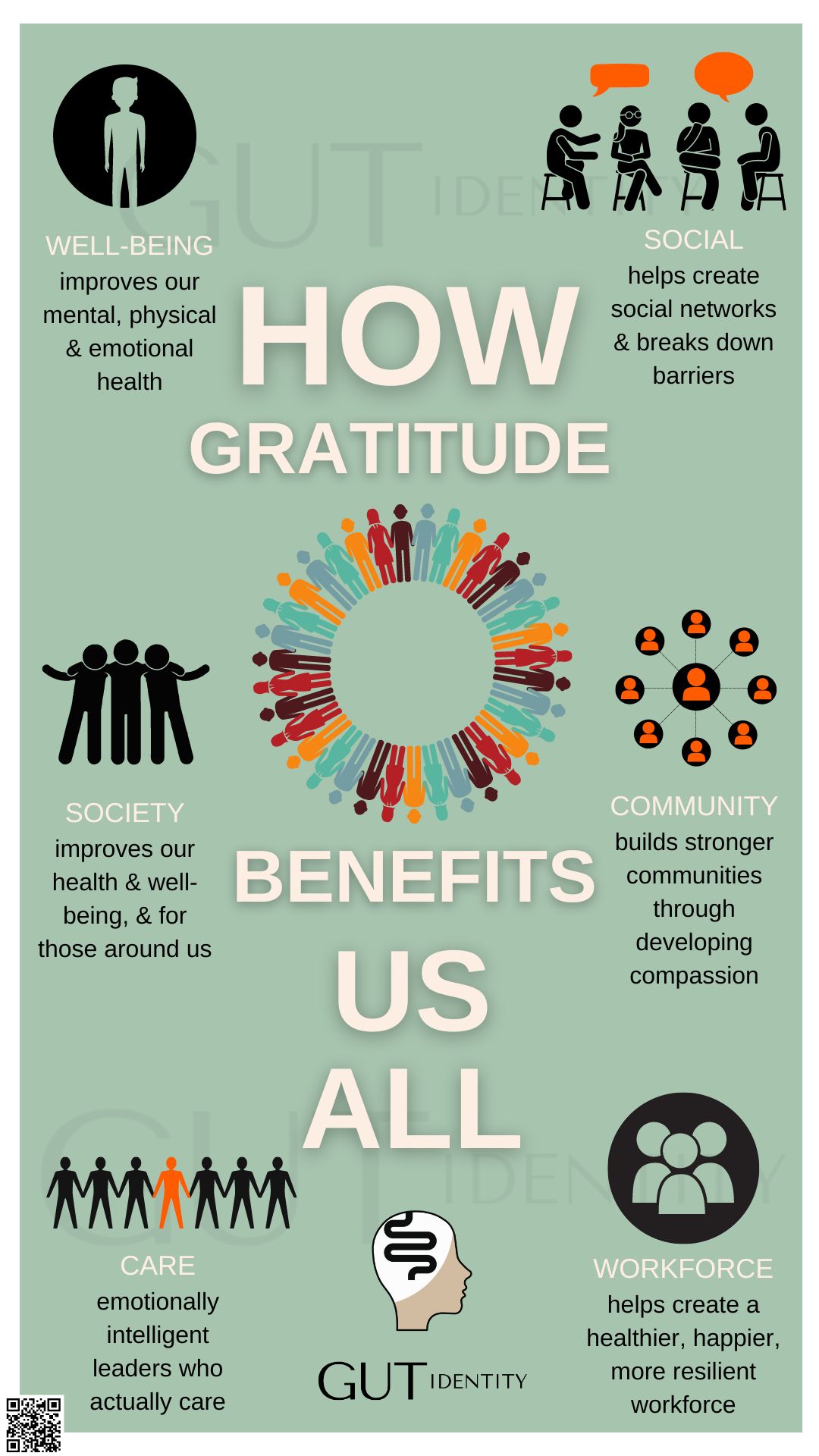
learning from failure helps build resilience

Find opportunity in failure. I don’t even see failure as failure now. All I see are learning opportunities. But I wasn’t always like this. It’s taken some pretty major life events to get to this point.
So now I ask myself the following: What am I learning from this? What can I take from this situation and how can I turn it into something that helps me? I purposely do things I suck at. I put myself in awkward situations that are really out of my comfort zone. I do this so I have to feel and think in different ways. Feel the awkwardness of slipping out of my comfort zone. It’s confronting, but that’s why I do it. If I don’t, the walls of the comfort zone close in making resilience more difficult.
We usually try everything to avoid the uneasy feeling of failure but if we face things, each time we overcome it, we are stronger when something trips us up down the line. Because something will always trip us up. It’s how we respond to that trip that defines us. Dust yourself off, carry on, and be aware of how you handled something.
rely on healthy coping mechanisms to build our resilience

Relying on healthy coping mechanisms is essential for building resilience. It teaches our body and minds that we can indeed handle a situation and come through it ok. Activities like exercise, meditation, journaling, and talking with friends help manage stress and maintain emotional balance. These positive strategies enable us to deal with challenges constructively rather than resorting to harmful habits like overeating or substance use.
By consistently using healthy coping mechanisms, we strengthen our ability to handle adversity, maintain our well-being, and recover more quickly from setbacks. If we do these things over and over again, they become second nature and easy strategies to rely on when times are challenging.
Making a list of the things we can rely on can help. If you struggle to think of things, read some of my other posts for some ideas. When a situation comes up now, the first thing I will do is rely on healthy coping strategies rather than destructive ones as I know this will help me to feel better.
Everything in life is temporary. Temporary pain. Temporary joy. Temporary excitement. And that’s life. We are only here for a temporary time so why not learn how to enjoy every temporary moment, including the ups and the downs, and to learn to enjoy riding the waves however turbulent?

summary of ways we can develop resilience
- Develop a Growth Mindset: See challenges as opportunities for growth rather than seeing them as insurmountable obstacles. View setbacks as temporary and focus on learning from them
- Cultivate Self-awareness: Understand your strengths, weaknesses, and emotions. Recognise your reactions to stress and adversity, and work on managing them effectively
- Build a Support Network: Surround yourself with friends, family, mentors, and peers who uplift and support you during difficult times
- Be Adaptable: Be flexible and adaptable in the face of change. Develop the ability to adjust your goals and plans when necessary, without losing sight of your long-term objectives
- Maintain a Positive Outlook: Focus on the aspects of situations that you can control and find reasons to be hopeful. Optimism can help you maintain motivation and perseverance during challenging times
- Problem-Solving Skills: Enhance your ability to think critically, analyse problems, generate solutions, and take decisive action. Break down complex challenges into manageable tasks and approach them systematically
- Self-Care: Take care of your physical, mental, and emotional well-being. Engage in activities that promote relaxation, stress reduction, and overall health, such as exercise, meditation, hobbies, and spending time with loved ones
- Practise Resilience-Building Activities: Engage in activities that specifically target resilience, such as journaling, gratitude exercises, mindfulness meditation, and seeking out new experiences
- Learn from Failure: Instead of dwelling on failures, use them as opportunities for learning and growth. Reflect on what went wrong, identify lessons learned, and adjust your approach accordingly
- Healthy Coping Strategies: Build a repertoire of healthy coping mechanisms to manage stress and adversity effectively. This might include deep breathing exercises, regular exercise, seeking social support, or engaging in creative projects
- Perspective: Keep challenges in perspective by reminding yourself of past successes and overcoming obstacles. Recognise that setbacks are often temporary and that you have the strength and resilience to overcome them

bottom line
We all have a choice in how we deal with challenging situations. We can either wallow in self-pity or look for solutions rather than problems.
We can learn to navigate challenges when armed with some strategies and some commitment. A coordinated approach to picking ourselves back up when times get tough, and having good self-awareness, can help us deal with future problems as they crop up. Give it a go! You can do this!!!

